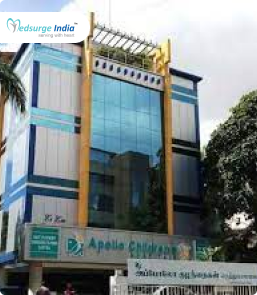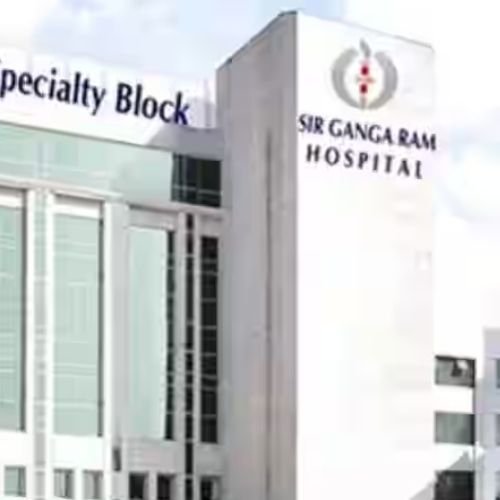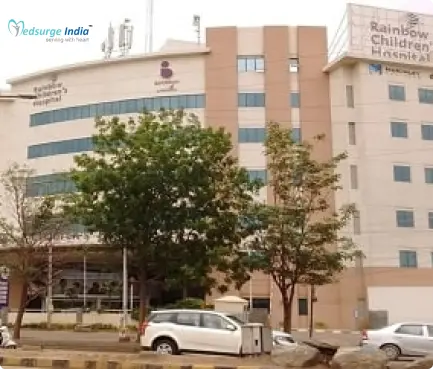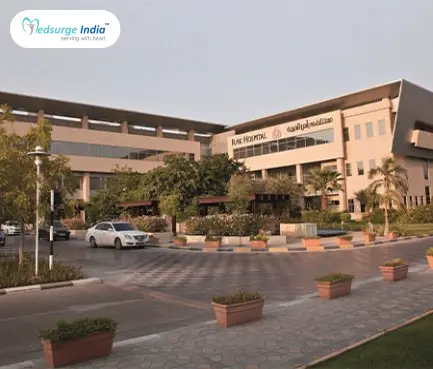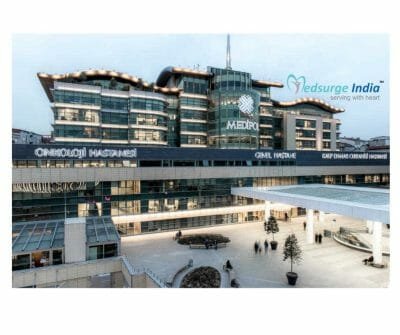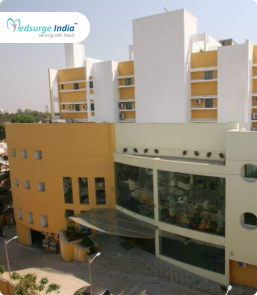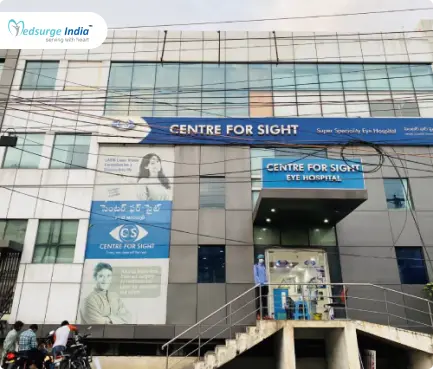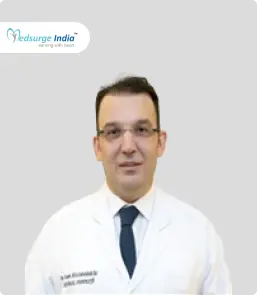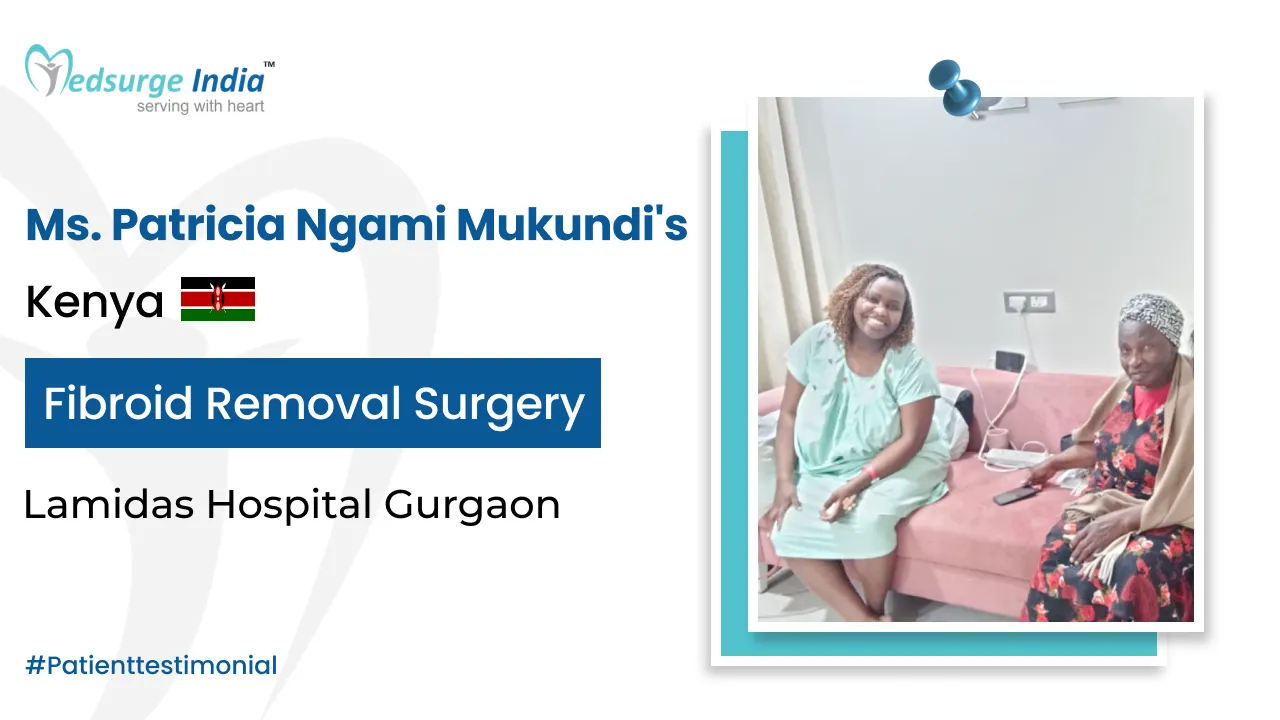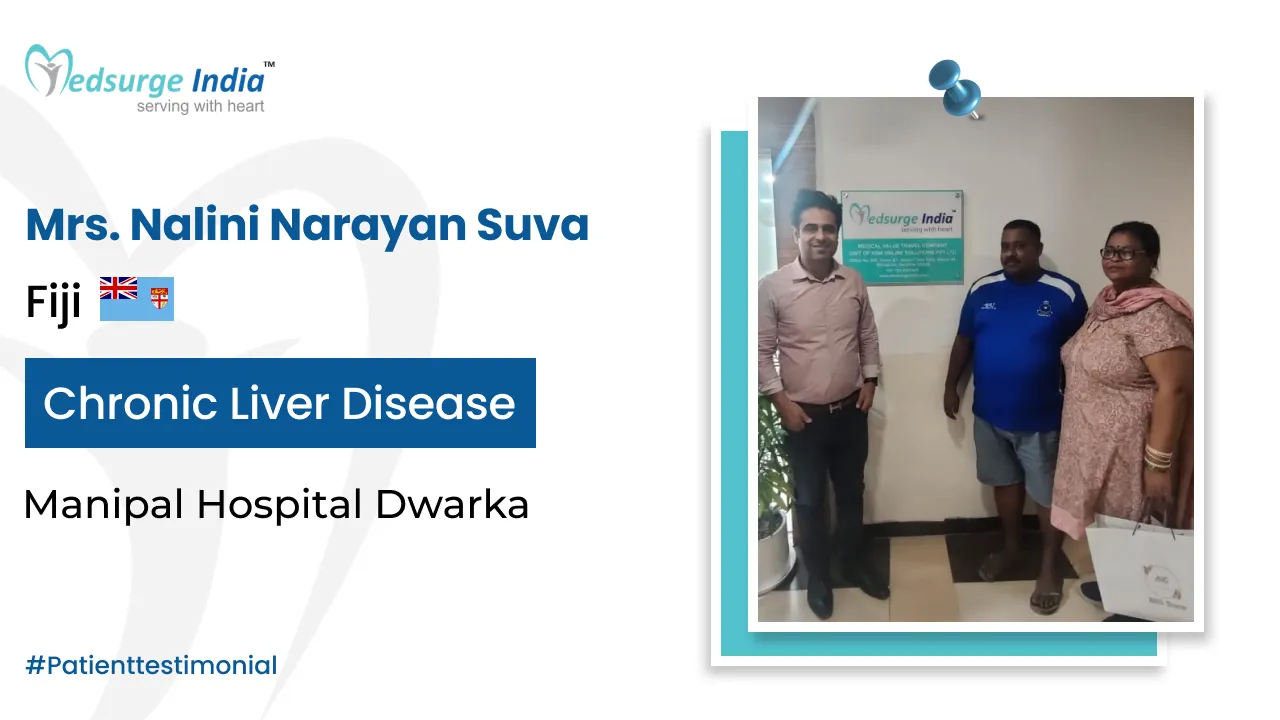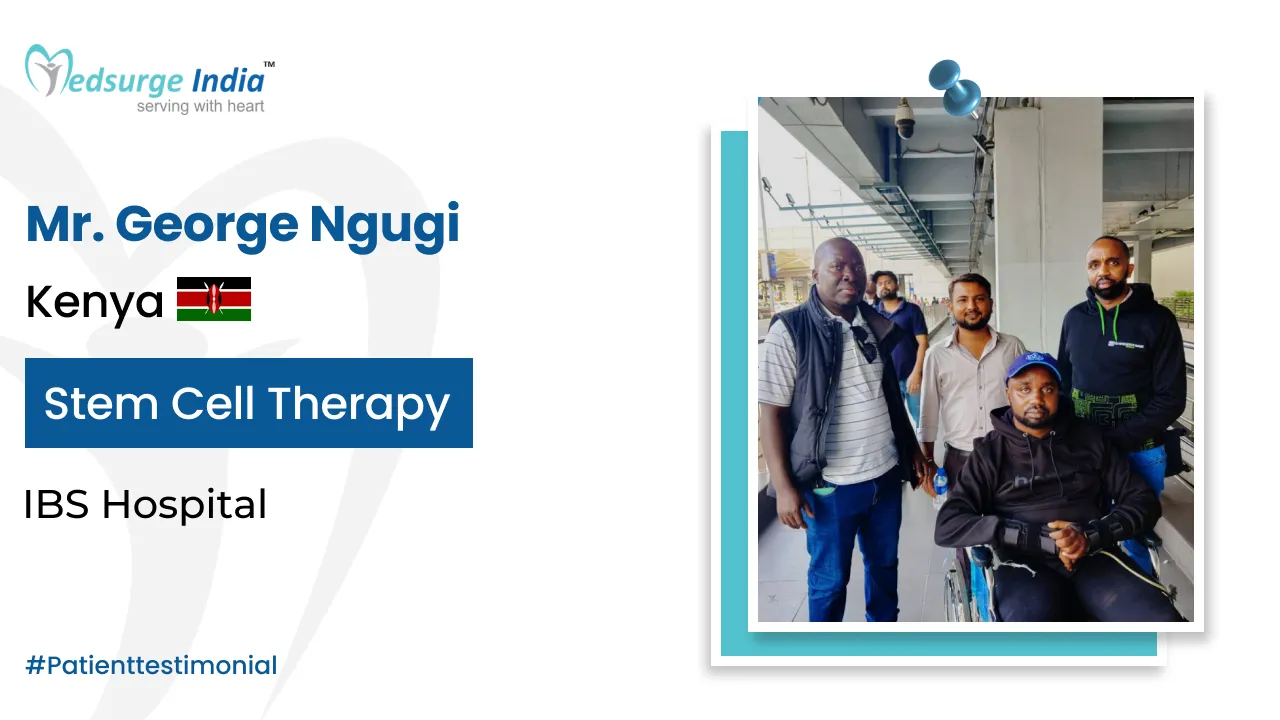
The estimated Lung Cancer Treatment Cost in Turkey ranges between USD 10,000-USD 12,000 .
Lungs are the primary organs of the respiratory system. They are spongy, air-filled organs that help in inhaling oxygen and expelling carbon dioxide. Cancer is a life-threatening disease in which abnormal cells grow uncontrollably. Lung cancer is a disease in which cancer develops in the lungs that can spread to the nearby organs or tissues as well.
Lung disease is a potentially deadly disease that is a leading cause of death worldwide.
Lung Cancer: Signs & Symptoms
Some of the main symptoms that can help your doctor in diagnosing and treating lung cancer are:
- A cough that lasts for more than three weeks
- Breathlessness
- Blood in cough
- Recurrent chest infections
- Tiredness or fatigue
- Loss of appetite
- unexplained weight loss
- A cough that gets worse over time
- Pain while breathing or coughing
Other symptoms associated with lung cancer include:
- Difficulty when swallowing, Dysphagia
- Wheezing
- A hoarse voice
- Swollen face or neck
- Changes in fingers like curved or larger at ends, this is also known as finger clubbing
What Are the Major Causes of Lung Cancer?
- Smoking is the most common risk factor for causing lung cancer.
- However, lung cancer can also hit those who have never smoked in their life. In such cases, there is no clear evidence of the cause of lung cancer.
- Smoking causes lung cancer by damaging cells that form the lining of the lungs.
- When you inhale cancer-causing substances smoke, it directly affects the lung tissue at once.
- Initially, your body tends to repair itself. However, with repeated exposure to smoke, the normal cells forming the lining of the lungs start damaging leading to the development of cancer.
Lung Cancer & Its Major Types
Lung cancer is broadly classified into two main categories based on the appearance of cancerous cells under the microscope.
- Small Cell Lung Cancer: This type of lung cancer is aggressive and comprises 10-15% of lung cancers. It is mostly caused due to cigarette smoking and metastasizes rapidly to other organs.
- Non-small Cell Lung Cancer: 85% of lung cancer cases are NSCLS. They are further classified into three main types:
– Adenocarcinomas: It comprises 40% of cases of lung cancer. This type can also be seen in non-smokers especially women. Most often, adenocarcinomas develop in the peripheral or outer area of the lungs and tend to metastasis to the nearby lymph nodes and beyond.
– Squamous Cell Carcinomas: It mostly occurs in the central chest area in the bronchi and constitutes approximately 30% of the cases. It often remains within the lungs or spreads to the nearby lymph nodes and grows uncontrollably, forming a cavity.
– Large Cell Carcinomas: This is the rare type of lung cancer that spreads to the lymph nodes and distant organs.
What Are the Risk Factors for Lung Cancer?
There are a number of risk factors that may increase the risk of developing lung cancer. These factors include:
- Smoking: The risk of lung cancer is directly proportional to the number of cigarettes you have smoked over the number of years. If you smoke, it’s high time to quit as it significantly lowers your risk of lung cancer development.
- Family medical history of lung cancer: If any of your family members had been diagnosed with lung cancer in the past, your chances are high of developing this disease as well.
- Exposure to toxic chemicals: Exposure to certain toxic chemicals and cancer-causing substances such as asbestos, chromium, nickel – can increase your risk of developing lung cancer as well.
- Radiation therapy for cancer treatment: If you’ve had radiation therapy in the past around the chest area, it also increases your chances of lung cancer.
- Passive Smoking: If you don’t smoke but inhale smoking through active smokers, you become prone to developing lung cancer.
What Preventive Measures Can Be Taken to Prevent Lung Cancer?
Several preventive measures can reduce your risk of lung cancer and they are:
- Quit Smoking: About 80-90% of lung cancer cases happen due to smoking. Quitting smoking is one of the main steps that can be taken to lower the risk of lung cancer. Talk to your medical specialist about making necessary lifestyle changes to quit smoking. You can take nicotine replacement products and join support groups or programs.
- Avoid Secondhand Smoke: Approximately 7,000 lung cancer cases happen in the United States every year due to secondhand smoke. Also, living with a smoker increases your risk up to 30%. Prefer smoke-free bars, restaurants, hotels. You can also ask people not to smoke in your car or home. Ask your friends and family not to smoke near your kids. Also, teach your children about secondhand smoke and its bad effects.
- Check Your Home For Radon Levels: Radon is an odorless radioactive gas produced from the natural decay of uranium found in rocks and soils. Unsafe levels of radon can accumulate in buildings that cause around 3 to 14% of lung cancers. There are safe and cost-effective methods to prevent radon accumulation into buildings including your homes as well.
- Avoid Exposure To Toxic Chemicals: If your workplace has exposure to carcinogens and other cancer-causing chemicals, follow the employer’s precautions. Wear masks if asked. Also, consult your doctor for necessary precautions. Quit smoking if you smoke else chances of lung cancer increase from workplace carcinogens.
- Follow Healthy Lifestyle: Eat plenty of fruits and vegetables. Include food sources of vitamins and nutrients in your diet. Avoid taking vitamins in the form of artificial supplements. It increases your risk of lung cancer especially if you smoke. Also, follow an exercise routine at least three to four days a week.
What Makes Turkey One of the Best Countries for Lung Cancer Treatment?
Turkey is amongst the top 10 medical tourism destinations because of the following reasons:
- Government’s Support in Healthcare System: In the past years, Turkey has made several efforts to make advancements in the medical field. Turkey has been able to set up several healthcare institutions across the country because of public-private partnerships under the Ministry of Health.
- Hospitals in Turkey: WIth more than 50 JCI accredited hospitals across Turkey, the healthcare industry has already begun to spread its magic in various cities including Ankara, Izmir, Istanbul, and Bursa.
- International Collaboration: Apart from well-facilitated hospitals, Turkish hospitals have collaborated with several international hospitals such as Anadolu Medical Center with John Hopkins Medicine International, Memorial Health Group to join the American Hospital Association, Acibadem Hospital with Harvard Medical International, and so on.
- Experienced Medical Personnel: Healthcare services in Turkish hospitals are supervised by highly experienced doctors, surgeons, nurses, and other paramedics. There were approximately 150 thousand medical professionals in Turkey in 2017.
- Great Global Connectivity: With 33 airports offering domestic and international flights, Ataturk airport in Istanbul serves the highest number of passengers daily. Turkish airlines, Onus Air, Emirates, and other global airlines offer great services across the world and within Turkey.
- Turkish Visa Process: Once you decide to get treatment in Turkey, submit your documents for verification. After verifying documents, you are good to go to Turkey for your medical treatment. For traveling, you must have a valid passport 90 days before you travel from your home country. The visa fee varies from country to country. There is no visa fee if you are from Israel, Brazil, Brunei, Bulgaria, Czech Republic, Denmark, Ecuador, El Salvador, Estonia, Morocco, Finland, France, Greece, Guatemala, Belarus, Belize, Albania, Japan, Montenegro, Kazakhstan, Kyrgyzstan, Turkish Republic of Northern Cyprus, Colombia, South Korea, Kosovo, Costa Rica, Germany, Andorra, Argentina, Turkmenistan, Ukraine, Uruguay, Jordan, Vatican, Venezuela, New Zealand, Honduras, Iran, Latvia, Libya, Liechtenstein, Lithuania, Lebanon, Luxembourg, Macedonia, Malaysia, Mongolia, Moldova, Monaco, Nicaragua, Uzbekistan, Panama, Paraguay, Peru, Romania, St. Cristopher Nevis, Saint Marino, Seychelles, Serbia, Singapore, Slovakia, Slovenia, Chile, Tajikistan, Azerbaijan, Belarus, Sweden, Switzerland, Italy, Iceland, Thailand, Trinidad Tobago, Tunisia.
Apart from the above-mentioned factors, rich Turkish culture and magnificent tourist attractions with intrigued history attract people across the globe. In your leisure time, feel free to explore and enrich your knowledge level with Turkish historical, cultural, and geographical information.
Which are the best lung cancer treatment hospitals in Turkey?
Turkey abodes more than 50 JCI (Joint Commission International) hospitals that offer budget-friendly lung cancer treatment. Some of the best hospitals are:
- Medical Park Group, Istanbul: Established in 1993, Medical Park Group is one of the renowned healthcare groups in Turkey. It has various multi-specialty hospitals across Turkey with a capacity of more than 6,000 beds.
- Kolan International Hospital, Istanbul: Founded in 1997, it is a multi-specialty hospital with a capacity of nearly 200 beds with six operating rooms and 70 ICU beds. The healthcare services are backed up by more than 3,300 staff members including medical professionals, nursing staff.
- American Hospital, Istanbul: Founded in 1920, it is a super-specialty hospital that treats around 120,000 patients annually. It is one of the best hospitals well-known for lung cancer treatment in Turkey.
- Acibadem Hospital Group, Istanbul, Turkey: Founded in 1991, the hospital has 21 multi-specialty hospitals and 16 outpatient clinics across Turkey. The group has nearly 3,500 medical personnel and 4,000 nurses.
Lung Cancer Treatment Cost in Turkey
The average Lung Cancer Treatment Cost in Turkey starts from USD 10000. The treatment will depend on the type of treatment and the place you choose.
| Cities | Starting Prices |
| Istanbul | USD 11000 |
| Ankara | USD 10000 |
| Antalya | USD 10000 |
| Izmir | USD 10000 |
| Bursa | USD 10000 |
| Adana | USD 10000 |
Please note that the pricing and the treatment for Lung Cancer Treatment cost in Turkey will vary depending on the patient’s choice and other various factors.
Factors That Can Affect Lung Cancer Treatment Cost in Turkey
The following here are some variables that can affect Lung Cancer Treatment Cost in Turkey:
- Medication costs.
- Duration of treatment.
- Geographical location.
- Hospitalization expenses.
- Government policies and subsidies.
- Medical tourism packages.
- Hospital reputation and infrastructure.
- The expertise and experience of medical professionals.
- The type and frequency of diagnostic procedures.
- The choice of treatment modality.
Furthermore, even the standard and grade of medical care and amenities are comparable to those of the most prestigious healthcare facilities in the world, even when the expense of lodging, meals, and transportation is taken out. Also, under the direction of the most skilled physicians, Medsurge India provides patients with the lowest Lung Cancer Treatment Cost in Turkey.
How Is Medsurge India Helpful in Getting Lung Cancer Treatment in Turkey?
Medsurge acts as a digital mediator that helps in getting appropriate treatment at the best hospital in Turkey and offers the best and affordable lung cancer treatment cost in Turkey. The services include making appointments with the best doctor at the right hospital, transportation, nearby accommodation, food, visa assistance, everything. You just need to post a query on the website and expect a callback within 24 hours. Medsurge team fulfills all your needs that are required for medical treatment in Turkey.
Get Free Cost Estimation
Procedure
If your doctor suspects any relevant lung cancer sign or symptom, he/she may recommend a number of tests to look for any cancerous cells. These tests may include:
- Imaging tests: Your doctor may recommend several imaging tests such as X-rays or CT scans. An X-ray helps in determining if there is any abnormal mass or nodule. A CT scan may detect small lesions in your lungs.
- Sputum Cytology: If your cough releases sputum, your doctor may examine the sputum under the microscope to look for any sign of lung cancer.
- Biopsy: There are several ways to perform biopsies such as bronchoscopy, mediastinoscopy, or needle biopsy. In bronchoscopy, your doctor inserts a lighted tube down the throat into your lungs to extract a sample of abnormal lung tissue to examine it further. Mediastinoscopy involves an incision at the base of the neck to insert surgical tools behind the breastbone to take tissue samples for further examination.
A needle biopsy involves the use of X-rays or a CT scan to guide a needle down the chest wall to collect any suspicious cells.
The doctor sends these samples to the laboratory for further analysis. If the results confirm the presence of lung cancer, then your doctor performs staging tests to look for evidence of how far cancer has spread. These tests may include a series of CT scans, MRI, positron emission tomography (PET), and bone scans.
What Are the Treatment Options to Treat Lung Cancer?
There are various approaches to treat lung cancer. The appropriate treatment depends on various factors including the type of lung cancer – small cell or non-small cell, cancer’s stage, and its severity. Small cell lung cancer can be treated with a combination of radiation and chemotherapy while non-small cell lung cancer may need surgery, chemotherapy, targeted therapy, radiotherapy or a combination of any of these treatments.
Chemotherapy: It involves highly energized beams of anti-cancer drugs to kill or destroy cancerous cells. It is usually performed before carrying out surgical treatment.
Immunotherapy: Your doctor may prescribe immunotherapy drugs to treat cancerous cells. It may be used alone or in combination with other treatment options to treat lung cancer.
Radiation Therapy: It involves the delivery of radiation therapy to cancerous cells either from outside or through placing implants close to tumors inside the body.
Surgery: Your doctor may prefer a surgical procedure in the case of an advanced stage when all other options fail to deliver desired results. However, it can be used along with other therapies as well. The surgical procedures may include pulmonary lobectomy which involves surgical removal of a lobe of the lung, wedge resection which means removal of a triangular piece of lung tissue surgically, and video-assisted thoracoscopic surgery in which a surgeon inserts a tiny camera through an incision in the chest and perform surgery.
Targeted Therapy: Your doctor may use targeted therapy drugs alone or in coordination with other therapies to treat lung cancer.
Interventional Pulmonology: This technique is quite useful in treating tumors and relieving symptoms causing pain or breathlessness.
The Most Important Frequently Asked Questions
How Long Can I Survive Lung Cancer with Treatment?
Lung cancer is aggressive that spreads uncontrollably at a faster rate. Survival rates are improving but at a slower pace, especially in SCLS cases. If you are diagnosed at an early stage, there are chances of living five or more years from the time it is diagnosed.
How Much Does Lung Cancer Treatment Cost in Turkey?
The lung cancer treatment cost depends on cancer’s stage and the type of treatment chosen. Also, if the person is traveling to another city or country, the cost of traveling, accommodation, food, visa processing, air tickets also adds up.
Which Are the Best Hospitals for Lung Cancer Treatment in Turkey?
Turkey has a number of JCI accredited hospitals that are well-known for lung cancer treatment. Acibadem Healthcare Group, Medical Park Group, Memorial Antalya Hospital are some of the best hospitals with qualified pulmonologists ensuring healthier recovery.
What Are the Treatments for All Stages of Lung Cancer?
Chemotherapy, immunotherapy, targeted therapy, interventional pulmonology, radiation therapy are the treatment options for treating lung cancer. Your doctor decides the appropriate treatment for treating your case.
What Are the Types of Lung Cancer?
Lung cancer is mainly categorized into two types: small cell lung cancer and non-small cell lung cancer. About 80-85% of lung cancers are NSCLC.
How Long Does It Take to Recover from Lung Cancer Surgical Treatment?
It takes around six to eight weeks for complete recovery after undergoing lung cancer surgery. Post-operative follow-up visits are a must.
What Are the Visa Requirements for Traveling for Medical Treatment to Turkey?
A person must have a valid passport along with a corresponding visa. The visa requirements may differ depending on the country of origin.
Top Hospitals for Lung Cancer Treatment in Turkey
Top Doctors for Oncology and Oncosurgery
Dr. Özge Özdemir
Consultant
Experience: 9 years of experience
Medicana International Istanbul
Istanbul, Turkey
Dr. Yesim Yildirim
Associate Professor
Experience: 20 years of experience
Anadolu Medical Center, Kocaeli, Istanbul
Istanbul, Turkey
Dr. Alper Sonkaya
Consultant
Experience: 13 years of experience
Acibadem Hospitals Group
Istanbul, Turkey
Prof. Emin Gökhan KANDEMİR
Professor
Experience: 41 years of experience
Memorial Hospitals Group, İstanbul
Istanbul, Turkey
Dr. Omer Fatih Olmez
Associate Professor
Experience: 18 years of experience
Medipol University Hospital, İstanbul
Istanbul, Turkey
Dr. Burcak Erkol
Consultant
Experience: 23 years of experience
Yeditepe University Healthcare Institutions, Istanbul
Istanbul, Turkey
Dr. Mustafa Ozdogan
Consultant
Experience: 15 years of experience
Memorial Hospitals Group, İstanbul
Istanbul, Turkey
Dr. M. Ali Kaplan
Consultant
Experience: 11 years of experience
Memorial Hospitals Group, İstanbul
Istanbul, Turkey
Assoc. Dr. Fatih Selçukbiricik
Associate Professor
Experience: 38 years of experience
KOC University Hospital, Istanbul
Istanbul, Turkey
Dr. Muzaffer Sezer
Consultant
Experience: 13 years of experience
Anadolu Medical Center, Kocaeli, Istanbul
Kocaeli, Turkey
Dr Asli Saran Ikizler
Senior Consultant
Experience: 31 years of experience
Acibadem Hospitals Group
Istanbul, Turkey
Prof. Dr Zafer Gülbaş
Consultant
Experience: 43 years of experience
Anadolu Medical Center, Kocaeli, Istanbul
Istanbul, Turkey
Assoc. Prof. Sadi Kerem OKUTUR
Associate Professor
Experience: 19 years of experience
Memorial Hospitals Group, İstanbul
Istanbul, Turkey
Spec. Dr. Mustafa Solak
Senior Consultant
Experience: 15 years of experience
Hisar Hospital Intercontinental, Istanbul
Istanbul, Turkey
Dr. Hatem Ubic
Senior Consultant
Experience: 18 years of experience
Kolan International Hospital, Istanbul
Istanbul, Turkey
Prof. Ahmet Kemal Firat
Associate Professor
Experience: 24 years of experience
Emsey Hospital, Pendik
Istanbul, Turkey



